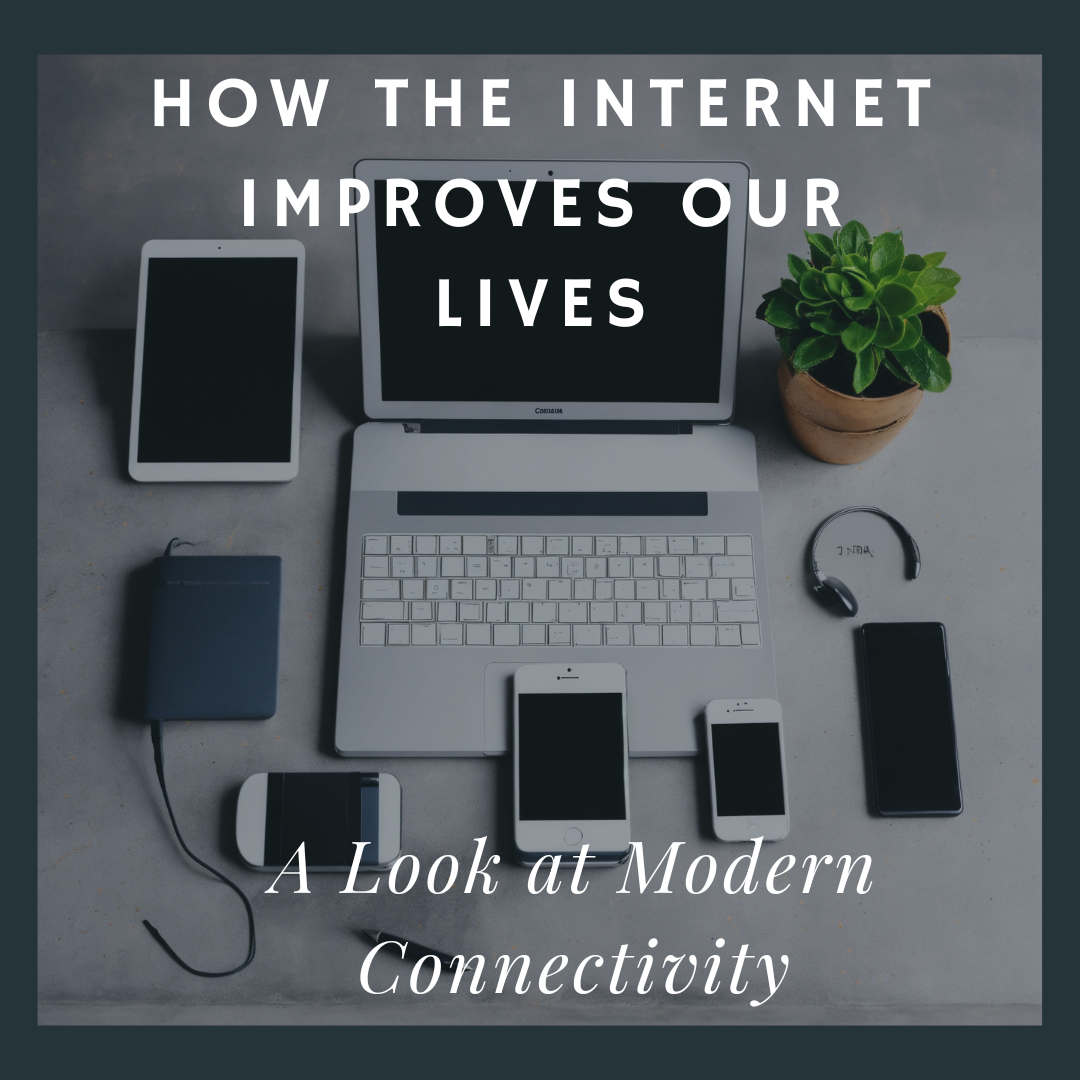Exploring Modern Connectivity: How the Internet Has Improved Our Lives
The internet has become an essential part of daily life, transforming the way we work, learn, communicate, and entertain ourselves. In just a few decades, it has reshaped industries, connected communities, and made information more accessible than ever before. Let’s explore some of the key ways the internet has improved our lives.
1. Access to Information
The internet is a vast library at our fingertips. Whether it’s academic research, news, or tutorials, information is available 24/7. Platforms like Wikipedia, Google Scholar, and online courses have made learning easy and free. This democratization of knowledge empowers people to make informed decisions, broaden their perspectives, and develop new skills.
2. Communication and Social Connections
Gone are the days when long-distance communication took weeks or months. The internet allows people to stay connected with loved ones across the globe instantly through emails, messaging apps, and social media. Platforms like Zoom and Skype also make remote work, virtual meetings, and online education more accessible and efficient. Social media helps us build and maintain relationships, foster global connections, and stay updated on events.
3. Online Shopping and E-commerce
E-commerce has, without a doubt, revolutionized shopping. With just a few clicks, consumers can effortlessly order products from anywhere in the world and have them delivered right to their doorstep. Moreover, this convenience not only saves time but also offers a wider variety of products and often provides competitive prices. As a result, small businesses can now reach global markets through platforms like Etsy, Shopify, and Amazon, effectively leveling the playing field for entrepreneurs.
4. Healthcare and Telemedicine
The internet has also brought remarkable advancements in healthcare. Telemedicine allows patients to consult with doctors, schedule appointments, and even get prescriptions without visiting a clinic. This reduces the strain on healthcare facilities and makes medical services more accessible to people in remote areas. Medical professionals can now access the latest research and collaborate globally, improving patient care.
5. Remote Work and Productivity
The rise of cloud computing, collaboration tools, and high-speed internet has made remote work more feasible than ever before. Employees and freelancers can now work from anywhere, providing flexibility and enhancing work-life balance. Tools like Slack, Trello, and Google Workspace streamline communication and project management, improving team productivity and reducing the need for physical offices.
6. Entertainment and Media
From streaming movies and music to gaming and podcasts, the internet has transformed how we consume entertainment. Platforms like Netflix, Spotify, and YouTube provide a vast range of content for all tastes and interests. The internet has also opened opportunities for creators to share their work globally, from independent films to digital art, allowing diverse voices to flourish.
7. Online Education and Skill Development
The internet, indeed, offers numerous opportunities for personal growth and education. For instance, platforms like Coursera, Udemy, and Khan Academy provide courses in various subjects, thereby enabling users to develop new skills or pursue degrees at their own pace. Moreover, this flexibility allows learners to upskill without the constraints of traditional schooling, consequently opening doors for career advancement and fostering lifelong learning
8. Financial Services and Banking
Online banking and financial services, therefore, have made managing money easier than ever. For instance, people can transfer funds, pay bills, and invest through apps and websites, thus avoiding the need to visit a physical bank. Moreover, this convenience not only improves financial literacy but also promotes better financial management. Consequently, it has spurred innovations like cryptocurrency and fintech solutions, revolutionizing the way we handle our finances.
9. Collaboration and Crowdsourcing
The internet has created a global platform for collaboration, where individuals and organizations can work together on projects across time zones and continents. Crowdsourcing platforms like Kickstarter and GoFundMe allow people to support innovative projects, while open-source platforms such as GitHub enable developers to collaborate on software projects. This collective power of ideas leads to faster problem-solving and innovation.
10. Civic Engagement and Social Change
The internet has empowered people to advocate for causes and participate in social and political movements. Online petitions, social media campaigns, and forums for discussion give citizens a voice, enabling them to contribute to democratic processes. From climate activism to social justice movements, the internet helps raise awareness and mobilize communities for change.
In conclusion, the internet has undeniably improved our lives in countless ways. By connecting people, improving access to services, and making information readily available, it has transformed society. As we continue to innovate and expand online services, the potential for the internet to improve our daily lives remains limitless. #InternetBenefits #DigitalLife #OnlineLearning #RemoteWork #TechForGood #Ecommerce #Telemedicine #DigitalInnovation #GlobalConnectivity #OnlineEducation #DivineOnlineSolutions












